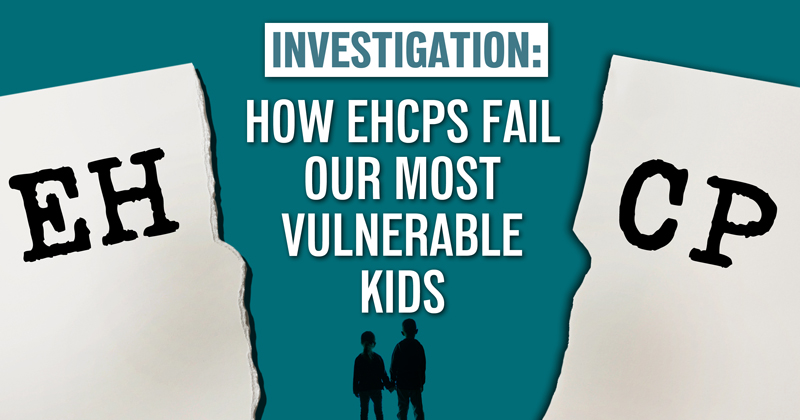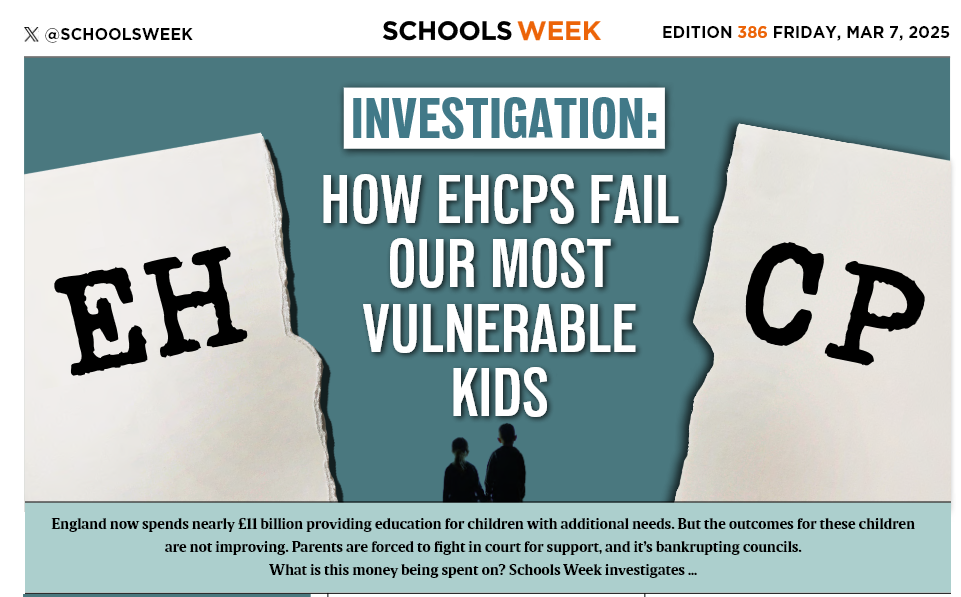England’s spiraling £11 billion high needs budget is being spent on interventions that evidence shows are ineffective, such as fidget spinners and learning styles.
A Schools Week investigation today exposes how education, health and care plans (EHCPs) fail the most vulnerable children.
The quality of education, health and care plans is consistently slammed by Ofsted. We found some plans had chunks of repeated paragraphs, while one trust said they had EHCPs “copied and pasted over from other children” and even “had the wrong name” on them.
Analysis by experts suggests most plans break the law over requirements that they provide specific and quantifiable support – helping councils shirk their legal duty to fully fund provision.
Meanwhile, absent and social care providers are pushing more responsibilities on to schools. One trust has warned an NHS board of a ‘significant risk to the health and life’ of vulnerable children over cuts.
Schools are also being legally mandated to deliver interventions that evidence suggests do not work, and could even cause harm, plans obtained by Schools Week show.
There are now calls for wide-ranging reforms, including a specialist SEND intervention evidence body to oversee what interventions are included in EHCPs.
Ben Newmark, a teacher and SEND expert, said: “We would not accept any of this for the most able pupils.
“If we were exposing them to this level of inconsistency and unevidenced practice, we just wouldn’t accept it. So why are we allowing it for the children who find learning the hardest and the most vulnerable?”
England now spends nearly £11 billion providing education for children with additional needs. But the outcomes for these children are not improving. Parents are forced to fight in court for support, and it’s bankrupting councils.
Sir Jon Coles, CEO of United Learning which has analysed its schools’ EHCPs, said: “I am seriously concerned that many billions of pounds are being spent on a system which claims to be bespoke to individual children, but in reality is far from that, and is likely to be having limited benefit to a lot of children – and perhaps no or negative impact on considerable numbers.”
Read the rest of our special, five-part investigation:
Fidget spinners and learning styles: EHCPs’ interventions exposed
Copy and paste: Poor quality EHCPs shortchange schools
Schools pick up the pieces of absent health and social care providers
Feature: The case for a SEND evidence ‘custodian’
Comment: SEND provision is the last bastion of unevidenced practice

















My child was a send child. She had a ehcp bur she did nor achieve her grades. The school wasn’t getting the money but my daughter didn’t achieve her gcse I was devastated as a parent. She went to an outstanding school.
Everything caused her stressed her attendance was brilliant over 95 per cent but you don’t know what happens behind closed doors. She has started college and trying to build her life back togther. I as a parent have worked in a school for twenty seven years. I have worked in early years. I haven’t had time to speak to ofsted or got advice from anyone because I don’t want my daughter to be reminded about what happened at secondary school. She is a lovely girl who is building her life togther